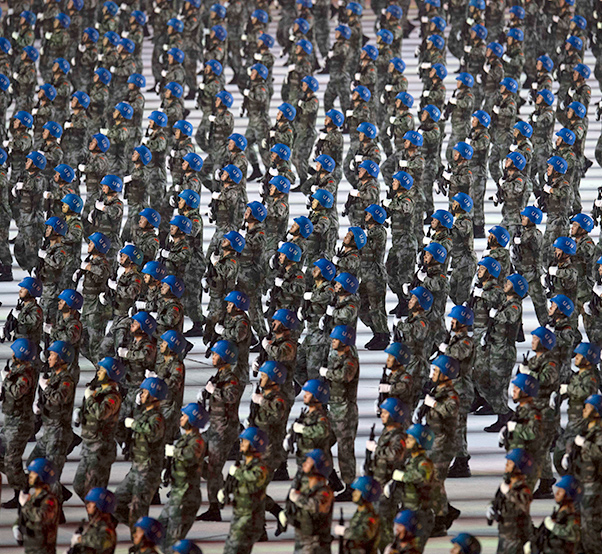The Defense Department is keenly focused on China and its growing projection of power, the deputy assistant secretary of defense for China said.
Chad Sbragia spoke in Washington, D.C., Nov. 13 at the “Securing the Belt and Road Initiative” forum sponsored by the National Bureau of Asian Research.
“The unfolding of long-term strategic competition with China really is the defining challenge of our generation,” he said, referring to economic, military and political competition.
China’s leaders announced in October 2017 that they want to assume a global leadership role, based on their authoritative socialist model, Sbragia note. And its 2019 Defense White Paper, published in July, discusses growing capacity to acquire a “strategic dagger,” he said, meaning the capacity to project power in a sophisticated way on a global scale.
“Our vision is to a free and open order for all nations, including China — not coercion and force,” he said.
Years ago, China was a continentally focused power, he said. Then it became maritime-focused, particularly in the East and South China Seas. Today, it seeks to project sophisticated power globally, particularly in areas with heavy Belt and Road Initiative activity, he said.

The BRI is China’s global strategy of investment in infrastructure development, thereby gaining economic leverage in dozens of nations.
“We need diplomatic, economic and security efforts to respond to China’s Belt and Road activities, and they have to be integrated in ways that in the past haven’t been done as well as they should,” Sbragia said. A whole-of-government approach that includes interagency cooperation and working to strengthen alliances and partnerships is key to the U.S. response, he added.
However, the United States is not seeking to contain China or decouple from having a dialogue with Chinese leaders, he said.
There are robust areas of cooperation between the United States and China, he noted, such as in recovering remains of soldiers lost during World War II and holding discussions about deconflicting in space and cyberspace.
In the end, Sbragia said, both China and the United States seek to stabilize their relationship and keep channels of communications open. For his part, he said, he looks forward to more discussions and meetings with his Chinese counterparts, and other DOD leaders likewise hope to engage.










